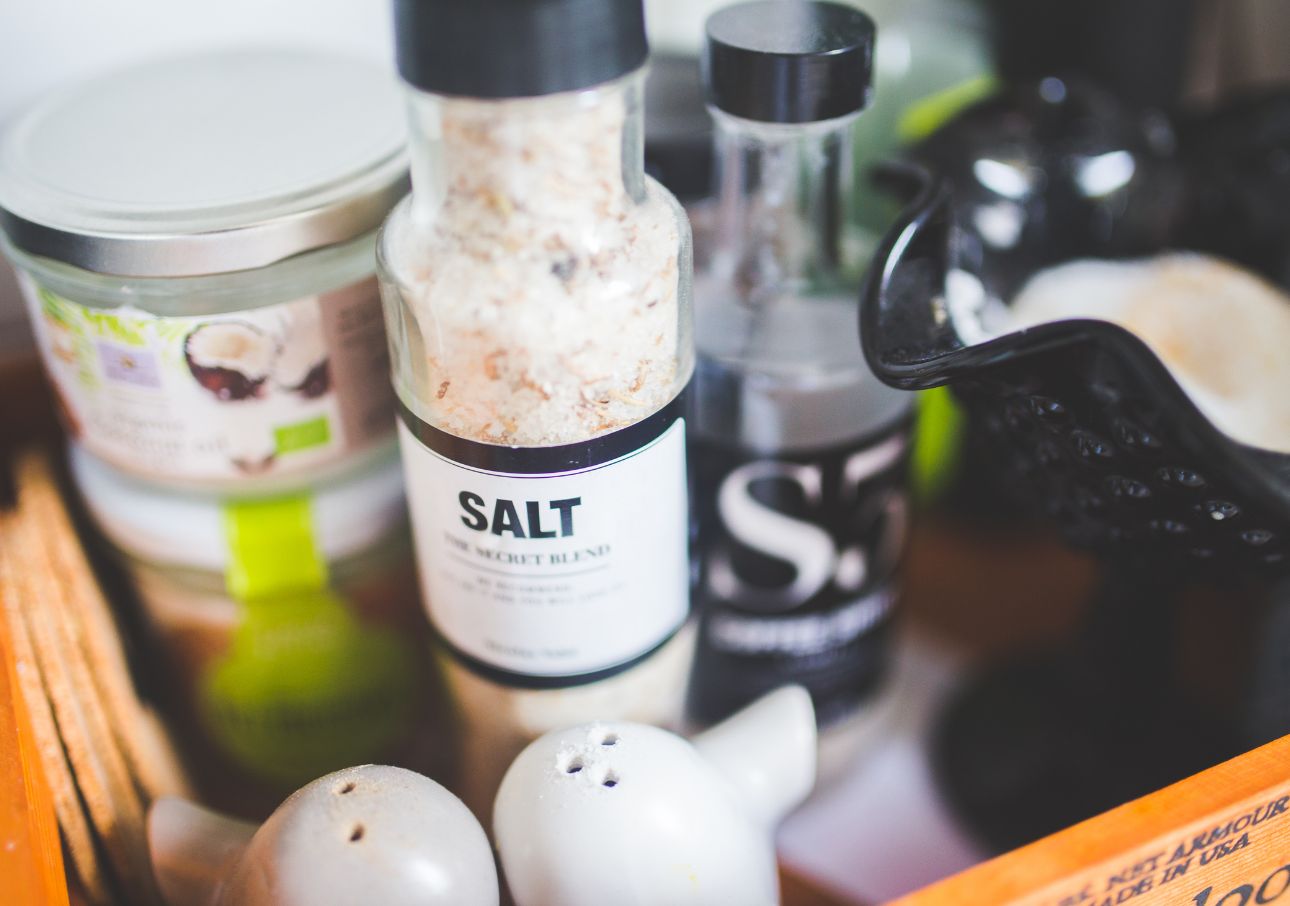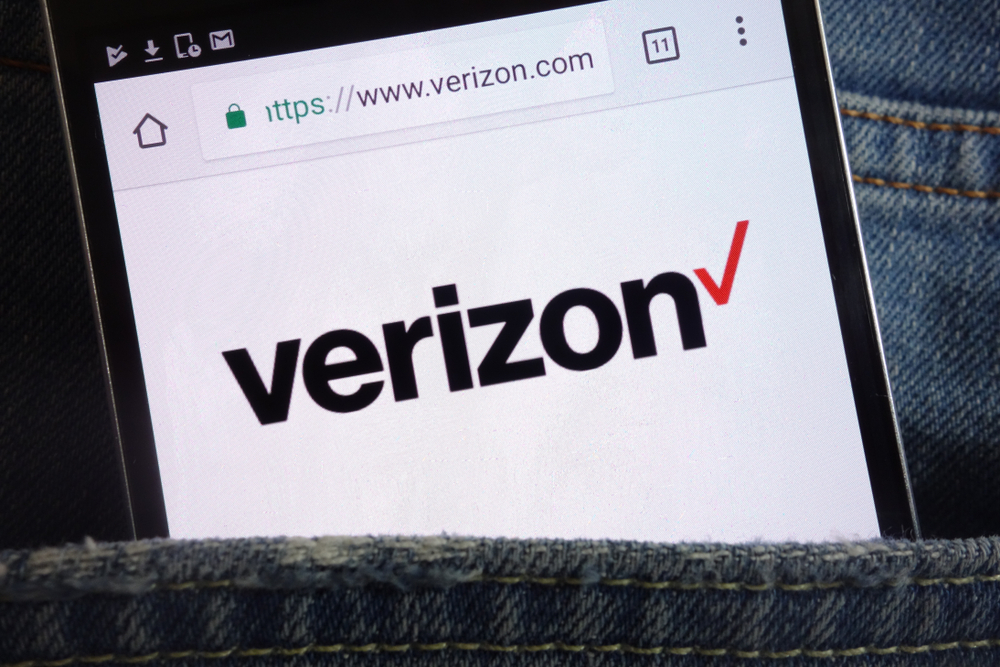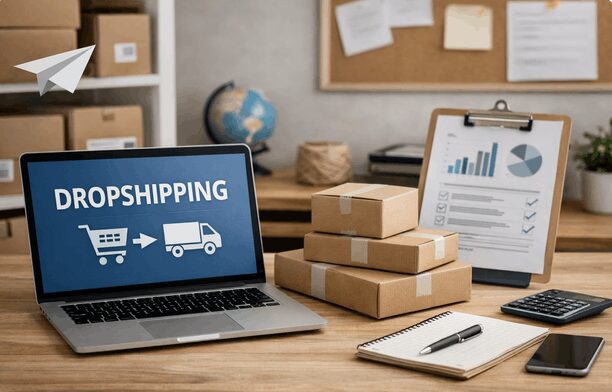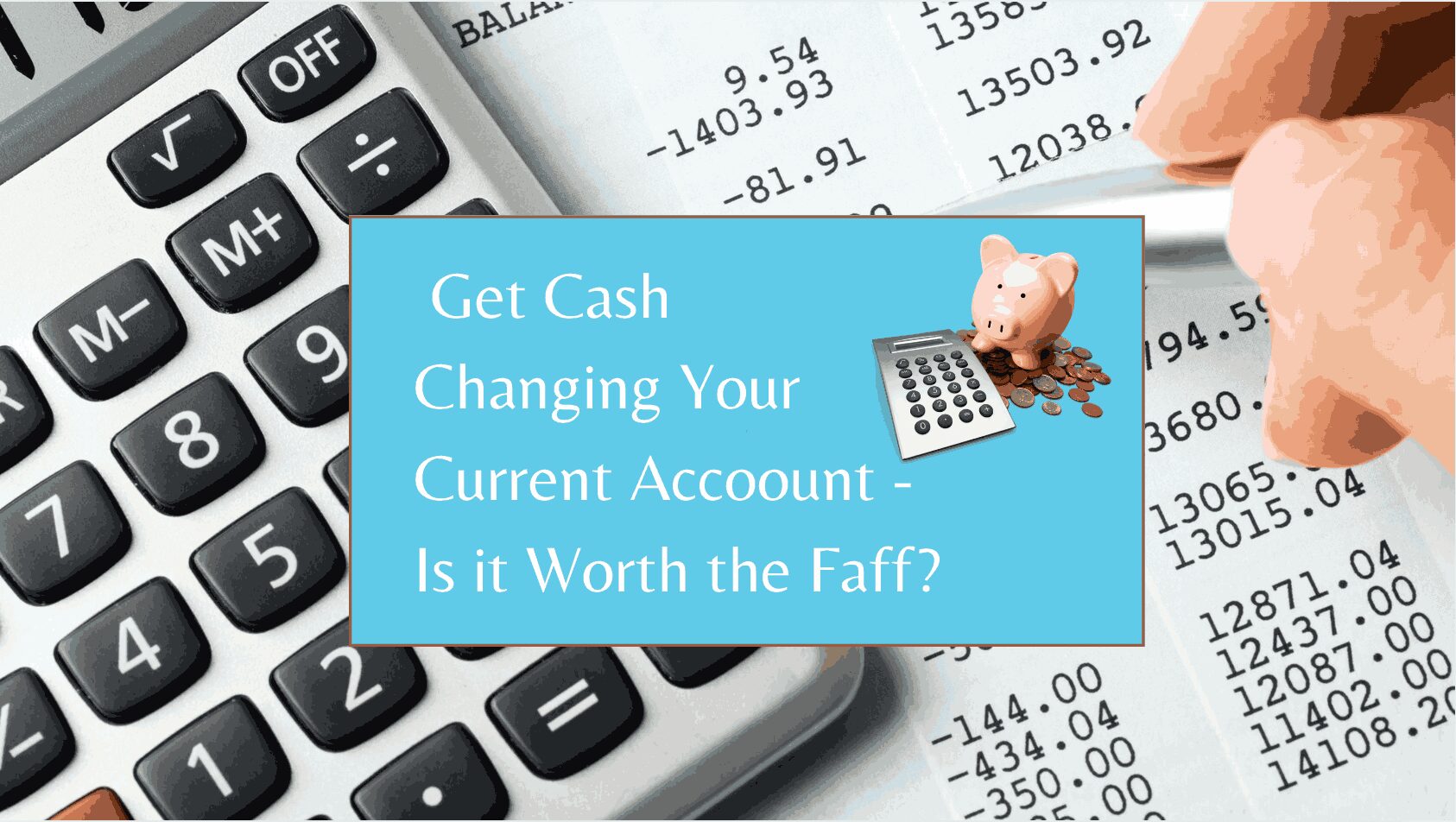Financial freedom—no boss bugging you, bills taken care of, vacations easily paid for, and time to do whatever you want. This is the goal of every real estate investor, and the goal Dave and Henry had when they bought their first rental properties. But now, they’re financially free, with real estate portfolios that can pay for their lifestyles and seven-figure net worths. Is financial freedom what they thought it would be?
No.
Dave and Henry could quit. They could vacation for much of the year. They could drive Ferraris. But…they don’t. They both continue to work and invest, even while being financially independent. But why? Today, we’re talking about why financial freedom is much different than you think, why Dave and Henry decided NOT to live off of their cash flow, and what actual financial freedom looks like (it’s not endless beach days).
You want financial freedom, but what if the reality of financial freedom is even better than you thought? Today, we’re showing you how to get there, how to change your financial freedom goals as you grow, and why getting to financial freedom slower will make you even happier.
Dave:
Financial freedom is a journey, not just a destination, and that’s a good thing. Maybe you want to replace your income and quit your job someday, and real estate can absolutely help you get there. But maybe what you really want is financial flexibility. The ability to buy dinner or go on vacation without having to stress about the costs and the ability to provide that flexibility is somewhat unique to real estate. Today we’re talking about how your goals can change over time, but there’s always an investing strategy to meet you where you are. Hey everyone. I’m Dave Meyer, head of Real Estate Investing here at BiggerPockets, and I’m joined once again by my friend Henry Washington.
Henry:
What’s up buddy? Glad to be here.
Dave:
I am glad you’re here as well because I think it’s fair to say both of us have sort of reached our own version of financial Freedom. Is that right? Would you say that?
Henry:
Yeah, absolutely. Absolutely. I’d say that it sometimes doesn’t feel like that, but yeah, for sure.
Dave:
Right. I think that’s kind of the point though. I’ve sort of hit financial freedom too, but also neither of us are actually retired at this point. We’re still working every
Henry:
Day,
Dave:
Which is basically sort of the big secret in this entire industry. Everyone who says that they’re retired is not actually retired. They’re just maybe doing something different than they were doing before they started getting into real estate investing. But that’s okay, right? That is, I think the whole point of the episode we want to have today is that the journey that you take on financial freedom does not look the same. It’s sort of a moving target. It shifts and changes, and in my opinion, at least every real estate deal I do, every decision I make should make me more financially free and what the actual destination is, I don’t even really know, and that kind of changes, but it’s about improving your financial situation with every deal you do. So that’s what we’re going to talk about today and how everyone’s goals are going to change during a wealth building career and how it’s actually okay to use real estate to make your life better right now, even if that means it’ll take you a little bit longer to reach some number that you may have in your mind. So Henry, let’s just dive into your story a little bit. When you first got started, was financial freedom even a goal? Did you know that word? Was that what you were pursuing?
Henry:
Yeah, that was 100% what I was pursuing.
Dave:
It was. Okay. And what did it mean to you?
Henry:
So I had this vision in my mind of at some point I would have enough rental property that I would just have cashflow coming in just in droves, and I would just be able to sit on a beach somewhere and not have to work. In other words, I just had this picturesque vision of cashflow, funding everything so that I could go where I wanted and do what I wanted and not have to worry about making money because my real estate portfolio just kicks off all this money for me.
Dave:
You were Scrooge McDuck just diving
Henry:
Into your pool of gold,
Dave:
Just pool of gold coin
Henry:
Doing gold coin angels.
Dave:
I mean, that is a vision I think a lot of people have. It changed though, you said that was your vision at the beginning, but it sounds like there’s a but coming there,
Henry:
Man, I don’t want to sound like a downer, but I want people to have a realistic understanding of what it is. When you get in this business, as you start doing deals, what you start to realize is yes, you buy properties that do make cashflow, but realistically, in a long-term rental scenario, your properties are probably kicking off between 100 and $500 per door of monthly cashflow. And so for you to truly live the lifestyle you want, it probably is going to take a whole lot of doors if you still have leverage on your property for that to become a reality. The other reality is the more doors you buy, the more money just comes in and goes out. And so yes, every month,
Dave:
That’s a good point.
Henry:
I get paid from my property manager and then mortgage payments comes out and taxes come out and insurance comes out and maintenance requests come out and I have over a hundred properties. And so this morning I got an email, I have somebody wanted $1,100 to replace a front door that somebody had kicked in and somebody wanted another $3,000 to replace a siding glass door and some trim in an apartment, and that’s just multiplied across a bunch of properties. Yes, in my underwriting, I accounted for these things to happen, but the money comes in, the money goes out. Unless you’re just some super accounting spreadsheet genius, it’s hard for you to know at any given point exactly how much actual net cashflow you have every single month. And then sometimes unexpected things happen. And so even though I thought I was going to have so much net cashflow, I have substantially less. Maybe this month I had four HVACs go out. And so what I learned was it’s really hard to live your life based on that cashflow income because every month is different,
Henry:
And if every month is different, it’s hard to have some consistency with being able to pay your bills and truly live off that money. And so what I quickly learned was like I don’t necessarily want to live off my cashflow. I want my properties to cashflow, but I want to be able to have a different, more consistent income stream that I actually live off of. And then I can take the cashflow and I can focus on a quarterly basis or on a semi yearly basis on paying down the assets with the cashflow that I have because at some point as more assets get paid off, that cashflow grows exponentially. Now I don’t have leverage to pay off anymore. And then you can truly live off that cashflow,
Dave:
Right?
Henry:
Because it’s kicking off so much more cashflow that it’s easy to actually plan your life around it, and it’s easy to take care of the maintenance items because your cashflow will go from a hundred to $500 a door to like a thousand to 1500 to $2,000 a door if you’re not paying that
Henry:
Mortgage payment every month on that property. And so I realized that the true cashflow that I’m looking for comes after the properties aren’t leveraged anymore. And if I can not live off the cashflow and I can reinvest that cashflow into helping me pay off the assets sooner, I can get to that goal sooner. And so that’s why I started flipping houses to generate the more consistent income that I can actually live off of because I can do the math and know if I flip five houses a year and I average 40 to 50 grand per flip, that’s good. I can manage my life off that.
Dave:
I would never, when I first started, think that you would say flipping is the more consistent income, but the way you do it, it does actually make sense that if you do enough volume, it does become actually more predictable than cashflow on a monthly basis.
Dave:
I think what you said makes a lot of sense is that cashflow is great to hold onto your property, but until you reach a certain size of your portfolio, it’s not actually all that dependable, even if it’s dependable on an annual basis or a long-term basis, which it should be if you’re underwriting well on a monthly basis, you got to make rent, you got to pay for your car. You can’t really rely on that until you get a certain size. And actually what I thought you were going to say is money’s coming in, money’s coming out, which is true from a expense standpoint. But I think the other thing that happens is you start to make cashflow and you, even if you’re acquiring it, you want to use it towards your next deal. You want to use it to fund your next rehab. You don’t want to use it for your lifestyle. And that can sort of spiral too, because if you want to get to a significant portfolio size, you need to keep up a pretty good reinvestment rate. That’s how you compound. You just keep pouring your money back into your business. And so
Dave:
I think that’s another thing that sort of gets lost in the shuffle here, but lemme just take a step back because when you first started, I get what you’re saying. You thought you’d live off cashflow. I think everyone does. Did you have a number in mind? X dollars of cashflow would give you your beach living fantasy?
Henry:
Yeah. The original number was just to get to what my current monthly income was from my day job in monthly cashflow. So I was making about $10,000 a month right
Dave:
Before taxes, before
Henry:
Taxes. So if I could get to $10,000 a month in net cashflow, then I wouldn’t need my job anymore. Seems like a pretty reasonable thing to think about.
Dave:
Great way to think about it.
Henry:
And you get there, and like I said, it’s just not as easy to know that you’re actually going to have $10,000 every month to spend. But what I truly started to learn was that real wealth is built through equity and appreciation. That’s where real estate is the most powerful. Real wealth isn’t built through leveraged cashflow. Leveraged cashflow. It’s more of a measuring stick to know you bought a deal. That makes sense because it makes you money every month. That’s why they say real estate’s a long-term game. The real payday comes much later.
Dave:
I do agree with that, and that has been my experience as well, that cashflow doesn’t make you a ton of money, especially upfront. But I do think that there are times in my life when I look at my investing career where cashflow did have a real significant impact on my lifestyle at that moment. My goal when I started real estate wasn’t to retire. I didn’t have this vision of like, oh my God, I’m going to sit on a beach. I’m going to buy enough rental properties. My original goal was like I was waiting tables and I was struggling to make rent, and I was like, if I could figure out a way to get 250 bucks a month,
Dave:
That would be really beneficial to me. And that’s why I bought my first deal. I had a friend who was making a couple hundred bucks a month on a rental property and I was like, I want that. And when I got that 200, I think it was actually more, I wound up doing a little better on that first deal that had a really big impact on me. I could go out to dinner, I could make rent. I wasn’t a struggle to make my car payment. And as my lifestyle got more expensive, and I know people will say like, oh, you shouldn’t have lifestyle creep, but that was part of my goal. I was 22 and I was scrimping by, I wanted a better lifestyle. I’m sorry. I wanted to go on vacation and to not worry about my finances all the time. And so as I sort of settled into what I actually want my lifestyle to be, my goals totally changed. And that’s where I took the approach. You started saying like, oh, actually 200 bucks at a time is not going to get me where I want to get to. I got to go a different
Henry:
Route. Yeah.
Dave:
I think that the great thing about real estate is that if you start generating cashflow, whether it’s $200 a month or $20,000 a month is its flexibility. It allows you to decide every month based on changing circumstances, do I want to reinvest this capital into my portfolio? Do I want to invest it in something else? Do I want to use it to support my lifestyle? To me, financial independence, it’s not some destination that you get to where you’re like, okay, I’m done. I’m never working again. Everything’s fine. For me, it’s like, no, I have some level of independence where if I choose to spend more this month, I get to spend more this month. If I choose to reinvest it, I get to make that choice. To me, that’s the part that reduces my very significant amount of financial anxiety that I’ve had for my whole life. That’s the thing that I find valuable. So let’s dig more into this flexibility concept. This is a really important thing that I think a lot of new investors maybe don’t realize, and honestly, I think a lot of experienced investors don’t take advantage of as much as they should. We do have to take a quick break though. We’ll be right back.
Dave:
Welcome back to the BiggerPockets podcast. I’m Dave Meyer here with Henry Washington talking about the journey that is financial freedom. So Henry, you said at the beginning your goal is to replace your income was like $110,000. Have you updated that goal?
Henry:
No, not from a cashflow perspective. Where I’m at in my journey now is I’m fairly comfortable with the size of my portfolio. Will I buy more rental properties? Probably, but not at the pace that I was buying them before. I can’t pass up a great deal in a great neighborhood. If I find it, I’m going to buy it. But for the most part, I’m not actively trying to scale as much. And so for me now it’s more about paying down the assets that I have, the way I look at things right now, I can get to a different level of financial freedom faster by getting rid of some of the leverage that I have versus buying more doors with more leverage. So if the goal was cashflow so that I don’t have to work, I can either get there by acquiring hundreds of doors leveraged to get me to a monthly cashflow number that makes sense, or I can get there by paying down the doors that I have and exponentially increasing that cashflow. And after having a big portfolio, I like the idea of not increasing that portfolio too much and then paying them off. Because big portfolios, the more doors you have, the more problems you have. There’s a lot of work that comes with that.
Dave:
Totally.
Henry:
And so I can get there more comfortably and enjoy my life a little more by having a smaller portfolio with paid off assets than having a larger portfolio with more leverage.
Dave:
Okay, this just made me think hot. Take question for you. Can you be financially free, truly financially free, whatever that means to you if you have debt on your properties?
Henry:
No,
Dave:
You can’t. Okay. You have to own ’em outright. I kind of like that take, I’ve never really thought of it before, but I kind of feel like if you’re sort of right, you still have, there’s a certain amount of risk in that limits your quote, freedom. If you have debt
Henry:
And you don’t truly own the asset until it’s paid off, someone can come and take that from you and change your financial freedom situation. If something happens and you can’t make the payments, you can lose that asset. And then your lifestyle is different. Also, the larger the portfolio, the better you have to be at managing your managers or managing those properties yourself. And that’s a job. That’s not freedom. That’s work. And I’m not saying that I’m getting rid of that work, but I’ll have a whole lot less of it with less doors that are paid off than with hundreds and hundreds of doors that are leveraged.
Dave:
Yeah, that’s a good point because financial freedom, you should have this cashflow number. There’s a certain number that you need, but there’s also an amount of risk that you probably want to get to an appropriate amount of risk and an amount of time that you want to be able to put into that because despite real estate being more passive than a W2 job, it is not entirely passive. And so it sounds like for you, Henry, that’s kind of like you need three different variables that you’re trying to work on, the total amount of cash you’re bringing in, the amount of risk you’re taking and the time that you’re putting into it.
Henry:
And we’re talking about financial freedom here, but there’s another element to this that we’re not touching on that’s also important to me. And it’s not just the financial freedom that comes with owning the properties and getting the cashflow outright, but it’s also the legacy of being able to pass on those paid off cash flowing assets. It’s the wealth that I want to pass on to my children, and the more leverage I take on, that’s more leverage I would pass on to them. But if I get these things paid off, people use the term generational wealth all the time, but I don’t know that they actually think about what that means. If you want that wealth to transcend you, you’ve got to get those assets to a place where you own them, you control them, your trust or your family owns and controls them and not a bank or some other financial institution. And so that they’re actually producing meaningful income that you pass on to future generations of your family. So it’s more than just financial freedom for me, but it’s also financial freedom for the people who are going to be around after me and that’s going to require me to get those assets paid off.
Dave:
I love that. This is a great take. I love it. Financial freedom, the three variables is really cool idea. It’s not just money, it’s also these other things that really matter here. But I need to circle back to something you said earlier. Has your financial goal really not changed? Is that 10 grand a month you were trying to replace still what you’re comfortable with? Or has your lifestyle changed and had gone up?
Henry:
When I said the financial goal hasn’t changed, I just meant I haven’t sat down and figured out what the new number is. What I essentially planned on doing after I figured out that the true wealth is in getting these things paid off was my original plan was like, how many doors do I need to get to for me to be able to sell off a portion of my portfolio to pay off the majority of the rest? And so that’s kind of how I started looking at this problem. So in other words, if I had a hundred doors, could I sell 50 and pay off the other 50, right?
Dave:
Yeah.
Henry:
Because 50 unlevered is going to pay me, well more than a hundred levered. And so what I actually started to look at was like, okay, in my portfolio, which assets are producing the way I thought they should or better which assets are underperforming, and then I can look at the assets that are underperforming and I can say, okay, does it make more sense for me to sell this asset, take that equity and pay off another asset, or
Henry:
Is this an underperforming assets that’s in such a good area that it makes more sense for me to pour capital into that asset to get it to perform better because the location is so good? So my goal became more of an analysis of like, okay, let’s get strategic with what you do have and then make decisions on what you should sell to pay off the ones you love or the ones that are in the best areas or the ones that you should not sell but maybe need a capital infusion or maybe some sort of exit strategy pivot
Dave:
So
Henry:
That it does produce because of the location or because of some other quality of that property that would say, I shouldn’t sell this property. And so I’ve just gotten a lot more strategic.
Dave:
That just makes so much sense. I hate the idea, I always say this, but I hate the idea of people being like, I’m going to buy real estate and never sell. That just doesn’t make sense.
Dave:
Or I’m going to do one renovation. Maybe you need to do another. If you think about the way other people invest stock market, you don’t not invest in a great company because you bought it at 20 bucks a share. If you can buy it at 30 bucks a share and you think it’s going to go to 50, sell some other stock and buy more of that one. It’s the same concept in real estate. If you have some assets that are fine, but you can have one that you take from being a solid performer to a great performer, go do that. That’s the kind of strategic thing that you need to be doing. I wanted to ask you that question because one, it makes me feel better about myself because I was concerned that you said, oh, I’ve just had this enormous amount of success in real estate and my financial run and goal hasn’t changed at all. And that would’ve made me feel terrible because mine definitely has,
Dave:
But I think the reason I bring that up is because kind of how it should be. I know there are these financial puritans out there who are like, you set a goal when you first started real estate to get five grand a month in cashflow, and once you’re done with that, you’re retired. And I just don’t buy that at all. I didn’t get into real estate to live the exact same lifestyle that I had when I was 22 and scraping by, and that’s why I just think this concept of financial independence as a destination or a single point in time is just not
Henry:
Real.
Dave:
What your goal is going to be changes all the time, at least mine does. And what I thought my goal was when I was 22 is completely different from what it is now, and it’s not just from lifestyle creep. It’s because I understand things like risk and time and inflation, which was just never on my mind when I was 22. I was like, all i’ll ever need is $500 for rent. That’s what I was paying in rent. My expectations have changed quite a lot since then. And so that’s why I think this concept of locking in that you have to have this date or this number in mind is honestly kind of limiting. I just think it’s never going to happen. You have to go with the flow a little bit. And I still keep a goal. I have a five-year goal always, but it changes. It changes and it probably will change again.
Henry:
And it’s not just your lifestyle or what you want changes, but the situation can change. For example, I did, I sat up for a long time. Once I get to a hundred doors, I look at selling half to pay off the other half. And when I sat down to actually do that exercise, I started looking at some of the assets and I was like, well, I don’t really want to sell that one in such a great location and it’s doing well and I don’t really want to sell this one in such a great location, but it’s not doing well. And so I’d rather try to save that one and maybe sell some other ones. And so then it turned out like, no, I’m not going to sell half to pay off the other half, but I am going to sell ones that it strategically makes sense to sell.
Henry:
I’m literally closing on one today. I’m signing docs right after this to sell a six unit that I bought just a year and a half ago because it doesn’t perform. I wanted it to perform and I can put that money to use somewhere else. And another scenario, I have a legacy property. I call it a legacy property. I knew the day I bought it, I was like, I’m never going to sell this thing. I can throw a rock and hit the university. It’s eight units. I bought it so cheap and it’s worth so much more like this is the exact kind of property that I want to pass onto my children. The location is perfect. And then some fund came and offered me so much more money than it’s actually worked. Exactly, yeah. That I was like,
Dave:
Take it. I’ll find a different one. Take. Yeah, I’ll pass something else onto my kids. Planes changed.
Dave:
Exactly. That’s so true. Well, I think that’s true on a property level, which ones you want to hold and keep and change. But for me, my lifestyle wise, it’s also really changed in my life too. I bought my first deal. I needed a couple hundred bucks, then I was like, all right, I’m just going to keep acquiring units. That’s my goal, get more units. But then all of a sudden I was running out of cash to buy more units and I figured maybe I should go back to graduate school and I should invest in myself so that I can get a higher salary so that I can go ahead and buy more units. And if I had just tried to buy more units or if I was living off my cashflow, I wouldn’t have been able to do that. And instead what I did was I was house hacking at the time, so my living were relatively low.
Dave:
And for I guess a year and a half, two years, I took my cashflow that I would’ve reinvested into more property or I would’ve used for my lifestyle and I paid my tuition to grad school instead of taking on loans. And I know a lot of people would say, oh my God, you slowed down. You didn’t buy doors for two years. No, I didn’t. And when I finished graduate school, my salary went up by like 80% and how many more doors I could buy after that a lot. That’s when my real estate investing career really started to take off. And I think that’s the sort of your goals, your circumstances just change. And so through talking this out with you, what I’m realizing is flexibility is the goal, not even necessarily a certain number that I’m looking for. I just want the ability to change my lifestyle as I see fit. And I guess in that way, I have become financially free. I can do that
Henry:
Right now. That’s 100%.
Dave:
Even though I’m not at some magical number that’s going to like the number I want to die with because who knows what’s going to happen. But I have reached a level of financial flexibility that I’m very proud of and very comfortable
Henry:
With. We need to put that on a shirt. That’s what it is. That’s 100%. What I was going to say to you too, it’s like what I really wanted as I dug down deep was to not be limited in my ability to do something that I want to do or something that I need to do for my family. And for the most part, I’m there. Yes, there’s limits. Yes. I couldn’t go buy a private jet and fly to Dubai and stay in a penthouse for six months of a year. I am
Dave:
Not who needs that,
Henry:
But I don’t want to do that pretty much. If I want to go somewhere with a little bit of planning and time, I can travel to that place if I need to. I was talking about this last night with my students as I was like, look, I just needed to get to the level of financial freedom where you can buy four tires at a time for your car. That’s a good, oh my god,
Dave:
That’s freedom. That’s so good Freedom. Yeah, you don’t have to just ride on the two front ones or bald as hell.
Henry:
Most people can only replace the one tire that has a problem or the two tires, and then you got three different types of tires at three different levels of tread, and you just do what you can to keep that car rolling. If I have a problem with my car and I need four new tires, Dave, I can give four new fricking tires today without thinking about it. I love that. That’s the level of financial freedom that real estate has brought me.
Dave:
We should start ranking, how many tires are you? You at one tire, right? Yeah. You have one tire, you had two tires. You have three tires. I love that. It’s so
Henry:
Funny. You got to get to four tires guys,
Dave:
Four tire club. It’s like, yeah, I can’t buy a jet either. I don’t care. That’s not what I want. But Henry and I are going to Vegas a couple days early before BP Con, and are we going to go do some dumb shit and spend a little bit of money probably. And we have the financial freedom to be able to do
Henry:
That. That’s a guarantee, not a probably.
Dave:
Yeah, that is an absolute guarantee. I just didn’t want to say it of the podcast publicly what dumb stuff we’re going to do in Vegas, but it’s going to be a great time. We do have to take a quick break, but more with me and Henry right after this. Welcome back to the BiggerPockets podcast. I’m here with Henry Washington talking about how financial independence is more of a journey than a destination. Let’s get back to it. But I guess that’s why I want to have this conversation with you is I feel like what gets lost in some of the personal finance stuff is like, yeah, you should compound, you should reinvest absolutely, but also enjoy your life. That’s the whole point. And if you just spend 20 years acquiring units and trying to get to some destination and don’t enjoy the process along the way, what have you really gained at the end of the day, you just lost 20 years of your life.
Dave:
I would rather make my financial journey go from 15 years to 25 years and enjoy every one of those 25 years instead of being miserable for 15 on the hopes that when I retire, I’m going to find something meaningful for myself that’s going to supplant what I was doing before. I don’t know, maybe this is just getting into a life philosophy lesson, but I’d rather just find a life I enjoy and yes, move closer to financial independence over that time period, but not at the cost of becoming super monastic about it and not enjoying anything and doing
Henry:
Stuff. And we all make trade-offs as well because things that we all enjoy or vices that we have that everybody’s like, man, if I only made X amount of dollars, I could go do this thing. And for people who’ve reached that level of financial flexibility, it’s not that they can just go to the bank, take out the money and do the thing. It’s more about I can think through what I have and I can put together a plan to get there in a fairly reasonable timeframe. If I wanted to go buy a Ferrari tomorrow, I probably couldn’t go buy it tomorrow, but I probably could look at my portfolio and if I really truly wanted something that was expensive, I could figure out a way to get there within the next six months. And that’s financial flexibility. I’m not saying that that would be a smart financial decision, I’m just saying I could get there. I have the flexibility to get there.
Dave:
So this asset that you’re selling right after this recording or you’re just freeing up capital to use when we’re in Las Vegas,
Henry:
100% blackjack money, baby, I’m double that money in Vegas, boy. Yeah, that’s the new strategy. Love it. My cash on cash return for playing blackjack with that money is so much higher than if I’d have just left it in this property. Don’t listen to me folks. This is terrible financial
Dave:
Advice. No, it is. This reminds me, there’s a blogger and personal finance influencer. His name’s Nick Majuli. We’ve had him on the market twice. We actually just had him on a couple days ago. He’s awesome. He has these levels of wealth and financial freedom that I really like that he just evolved it. But his old strategies, levels of wealth was like level one is like I’m not stressed out about debt, which is a really important level to get to if you don’t have credit card debt and student loan debt. That’s amazing. That’s a really important financial milestone. Level two. And I love that this is not numbers or finance basis. I don’t care what stuff costs in restaurant. And to me, I remember almost vividly the time in my life where this became true, whereas I wasn’t going out on a date with my wife and ordering the cheapest thing, and I could actually go by not the cheapest bottle of wine, but the second cheapest bottle of wine.
Dave:
I could accelerate my life a little bit. And to me, those are the moments I remember. Not when my bank account or net worth hit some number. Like, oh, I actually could go out to a restaurant, something I enjoy doing and not care about it. And then level three is I don’t care what a vacation costs. And that has been a more recent financial milestone for me. But that’s what I remember. Again, not how much cashflow I have every month, but I can go do this thing that I really love and is something that’s important to me in my life, and I don’t really have to worry about it. If I go on a vacation and they nickel and dime me and this stupid valet charges you 40 bucks when you show up that you weren’t planning on it, you can survive that and you can still have a great time and enjoy yourself. And that’s how I’ve over time started to just think about my portfolio. What does this enable for me? Not the number, not any destination, but how does this make my life better on a daily basis, even if I’m not using my cashflow from real estate, which is true. I’m not using my cashflow for real estate, but knowing that I have these valuable assets allows me to have more flexibility and
Dave:
Live a little bit more of, I guess I would say a little bit more of a carefree life.
Henry:
100%. Look, I told you level one financial flexibility for me was four tires at a time. Level two, financial flexibility for me is not having to wait in lines. I pay people to not have to wait in any lines for anything. I hate lines.
Dave:
If you ever want to go somewhere that’s busy, go with Henry because he will pay someone to skip any line. And I love it. It’s my favorite thing about hanging out with you. I hate you’re going to a restaurant. There’s a long line. Henry’s going to solve that problem and I don’t even have to do anything. I just have to be near you and you solve that problem.
Henry:
You’re absolutely right, my friend.
Dave:
So what’s level three for
Henry:
You? Oh, that’s a good one. I think. I didn’t think about that one yet. Maybe I don’t know what that one is yet.
Dave:
Well, we want to know. It’s not buying a jet. It’s not jet setting on your private jet, but it’s somewhere between buying four tires at a time at a private jet. That’s your level four. That’s your level three
Henry:
Financial. That’s a fair guess. Yes.
Dave:
Well, this has been a fun conversation. I feel like I’ve had an epiphany during this conversation about what financial independence actually means. We would love to know what it means to you. So if you’re watching this on YouTube or listening on Spotify where you can now leave comments on the episode, please let us know what your level one, you’re level two, and your level three financial freedom are. That will be a lot of fun conversation to have. And Henry, thank you so much for being here, man.
Henry:
Hey, thank you for having me, man. This was a great conversation.
Dave:
Thanks so much for listening to this episode of the BiggerPockets podcast. I’m Dave Meyer. We’ll see you next time. I.
Help us reach new listeners on iTunes by leaving us a rating and review! It takes just 30 seconds and instructions can be found here. Thanks! We really appreciate it!
Interested in learning more about today’s sponsors or becoming a BiggerPockets partner yourself? Email [email protected].













